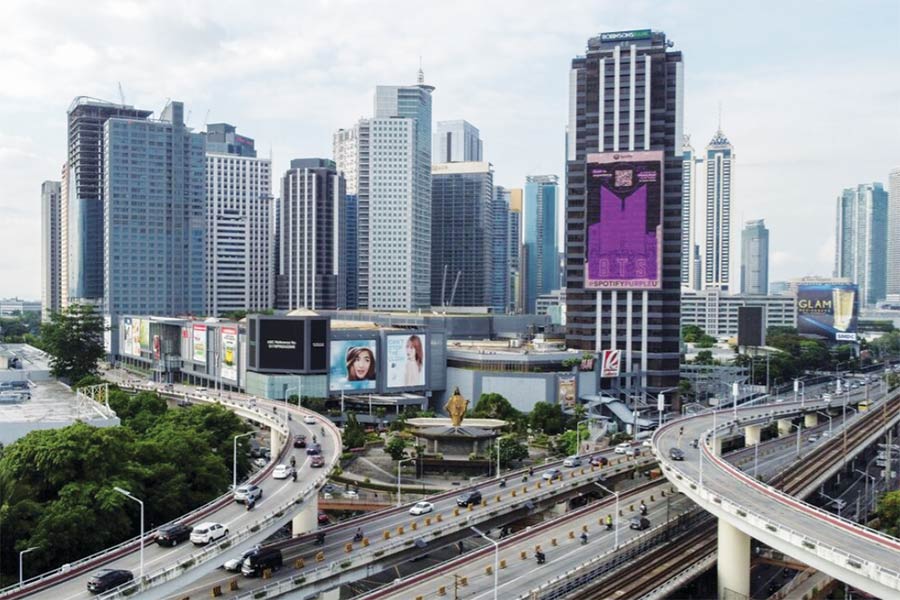The consumer sentiment in the Philippines improved in the first quarter of 2024 as the overall confidence index (CI) became less negative at -10.9 percent from -19 percent in Q4 2023.
For the same period, the business sentiment also turned less upbeat as the overall confidence index (CI) declined to 33.1 percent from 35.9 percent in Q4 2023.
Bangko Sentral ng Pilipinas said the improvement in the consumer sentiment means that although the pessimists continued to outnumber the optimists, the number of pessimists declined compared to the Q4 2023 survey results.
According to the respondents, their improved outlook in Q1 2024 was brought about by their expectations of: additional and higher income, availability of more jobs and permanent employment, and additional working family members.
Consumer sentiment, meanwhile, was less optimistic for Q2 2024 and the next 12 months as the CIs declined to 2.7 percent and 13.4 percent from 5.6 percent and 15 percent, respectively, in the Q4 2023 survey round.
The weaker outlook of consumers for both periods was attributed to their anticipation of: faster increase in the prices of goods, fewer available jobs, and lower income.
“Consumers were less pessimistic with respect to the country’s economic condition and the family’s financial situation while their pessimistic outlook for family income was little changed,” BSP said.
Consumer confidence was less pessimistic across all income groups–low-, middle-, and high-income groups.
For Q2 2024, consumer sentiment was less upbeat among the middle- and high-income groups, while sentiment in the low-income group turned pessimistic compared with the Q4 2023 survey results.
For the next 12 months, sentiment was less buoyant for the low-income group and remained optimistic among the middle- and high-income groups.
BSP said the consumer sentiment on buying big-ticket items in Q1 2024 was less pessimistic as the CI became less negative at -62.6 percent from -71.3 percent in Q4 2023.
Similarly, the buying sentiment on big-ticket items for the next 12 months was less pessimistic as the CI became less negative at -69.8 percent from -70.9 percent in Q4 2023.
The Q1 2024 survey results also showed that 24.9 percent of households availed of a loan in the last 12 months, higher than the 22.9 percent recorded in Q4 2023. Further, the percentage of households with savings increased to 33.5 percent in Q1 2024 (from 29.1 percent in Q4 2023).
As for the sentiment of businesses, BSP said this is reflective of the combined decrease in the percentage of optimists and increase in the percentage of pessimists.
The Q1 2024 CI turned less buoyant due mainly to the firms’ concerns over the: post-holiday decline in demand for goods and services and slowdown in business activities; persistent inflationary pressures stemming from higher food and oil prices and its impact on the economy; and stiff competition, and adverse effects of a strong El Niño event in 2024 on the agriculture sector.
For Q2 2024, the country’s business confidence was more bullish as the overall CI rose to 48.1 percent from 38.2 percent in the Q4 2023 survey result.
For the next 12 months, business confidence was similarly more upbeat as the overall CI increased to 60.8 percent from 54 percent in the Q4 2023 survey result.
“Compared to Q4 2023, the sentiment of firms in Q1 2024 was less upbeat for the industry and wholesale and retail trade sectors, more buoyant for the construction sector and steady for the services sector,” BSP said.
The business sentiment for Q2 2024 was more optimistic across all sectors. For the next 12 months, the outlook of businesses across all sectors was more upbeat, except for the construction sector whose outlook remained favorable for the said period.
The outlook of importers, exporters, and domestic-oriented firms was less optimistic, while that of the dual-activity firms was more upbeat in Q1 2024.
The average capacity utilization in the industry and construction sectors in Q1 2024 increased to 72.3 percent from 70.9 percent in Q4 2023. Moreover, businesses, in general, may hire more workers while industry sector firms, in particular, may expand their product lines or production capacity for Q2 2024 and the next 12 months.
The cash or liquidity positions of firms may remain tight as the financial condition index stayed negative at -15.5 percent from -15.1 percent. However, businesses anticipated less tight access to credit in Q1 2024 as its corresponding index became less negative at -0.6 percent from -3.5 percent in Q4 2023.
BSP added that businesses expect that the peso may appreciate against the US dollar, and the inflation and peso borrowing rates may rise in the first half of 2024 and the next 12 months.




